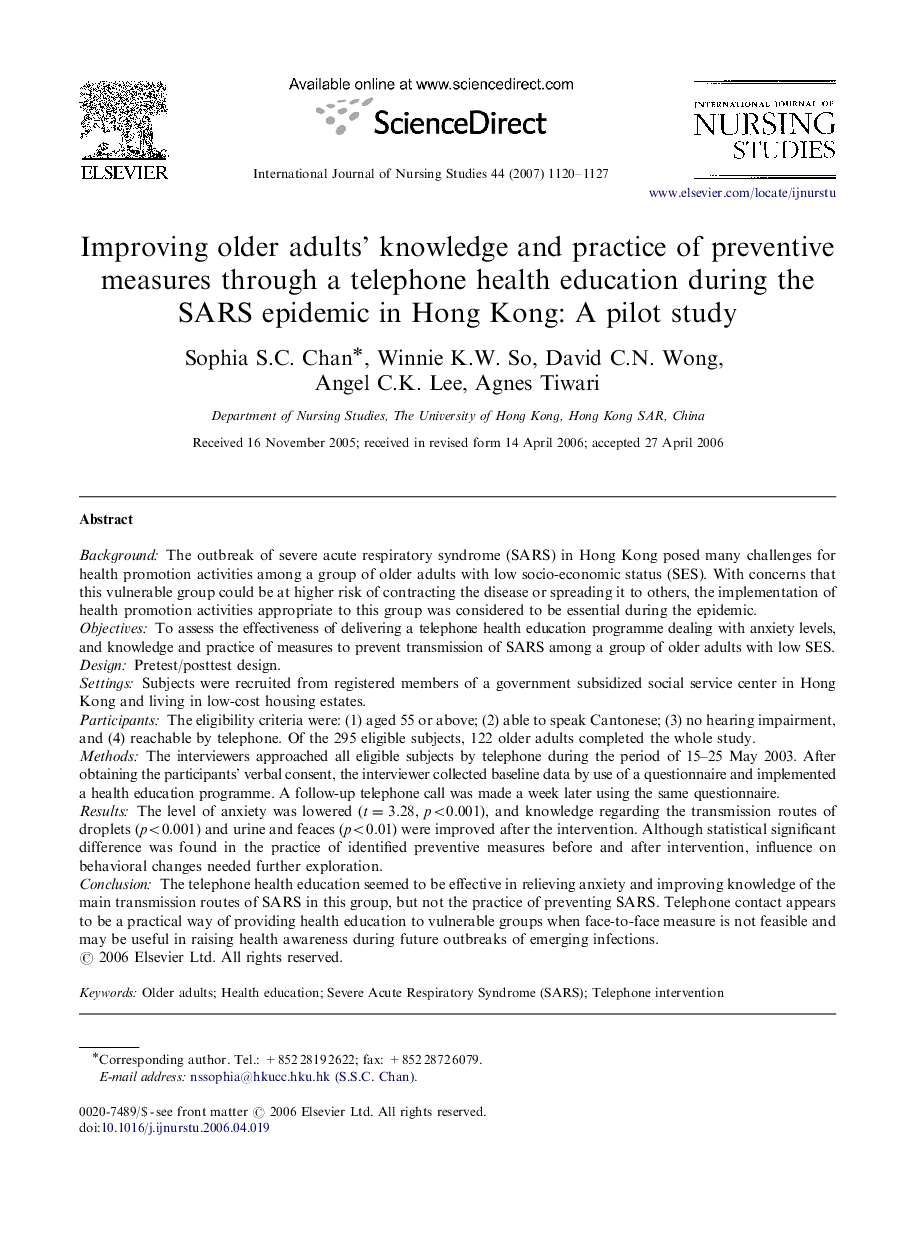| کد مقاله | کد نشریه | سال انتشار | مقاله انگلیسی | نسخه تمام متن |
|---|---|---|---|---|
| 1077516 | 1486614 | 2007 | 8 صفحه PDF | دانلود رایگان |

BackgroundThe outbreak of severe acute respiratory syndrome (SARS) in Hong Kong posed many challenges for health promotion activities among a group of older adults with low socio-economic status (SES). With concerns that this vulnerable group could be at higher risk of contracting the disease or spreading it to others, the implementation of health promotion activities appropriate to this group was considered to be essential during the epidemic.ObjectivesTo assess the effectiveness of delivering a telephone health education programme dealing with anxiety levels, and knowledge and practice of measures to prevent transmission of SARS among a group of older adults with low SES.DesignPretest/posttest design.SettingsSubjects were recruited from registered members of a government subsidized social service center in Hong Kong and living in low-cost housing estates.ParticipantsThe eligibility criteria were: (1) aged 55 or above; (2) able to speak Cantonese; (3) no hearing impairment, and (4) reachable by telephone. Of the 295 eligible subjects, 122 older adults completed the whole study.MethodsThe interviewers approached all eligible subjects by telephone during the period of 15–25 May 2003. After obtaining the participants’ verbal consent, the interviewer collected baseline data by use of a questionnaire and implemented a health education programme. A follow-up telephone call was made a week later using the same questionnaire.ResultsThe level of anxiety was lowered (t=3.28, p<0.001), and knowledge regarding the transmission routes of droplets (p<0.001) and urine and feaces (p<0.01) were improved after the intervention. Although statistical significant difference was found in the practice of identified preventive measures before and after intervention, influence on behavioral changes needed further exploration.ConclusionThe telephone health education seemed to be effective in relieving anxiety and improving knowledge of the main transmission routes of SARS in this group, but not the practice of preventing SARS. Telephone contact appears to be a practical way of providing health education to vulnerable groups when face-to-face measure is not feasible and may be useful in raising health awareness during future outbreaks of emerging infections.
Journal: International Journal of Nursing Studies - Volume 44, Issue 7, September 2007, Pages 1120–1127